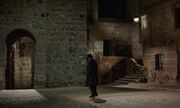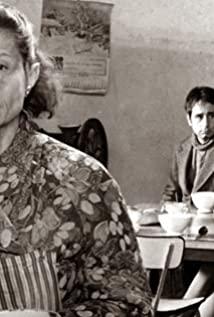The film is also ambiguous in terms of theme. As we all know, the sharp satire of the hilariously bourgeois/middle class is a constant favorite of Buñuel's films, and this one is no exception. Fernando Rey, the representative of the middle class in Buñuel's films, is still so sanctimonious and ridiculous this time. He declared himself extremely important to the outside world, and even sacrificed his life to defend his reputation; internally, he easily took the chastity of his adopted daughter Tristana, and claimed to be the father and husband of the other party, whichever role he liked. However, as the story progresses, we discover that despite his fake and ugly face, he is not a complete jerk. Because he doesn't believe in Christ, he is bright on the outside and poor on the inside, and he can't get the financial support of his wealthy sister, but he never changes his position because of money. It can be said that he has a lovely stubbornness, and in the end he entered the church because of Tristana. Father befriended. Perhaps he possessed Tristana despicably because he coveted Tristana's beauty, but after Tristana became disabled, he never forsook her, even if Tristana was cold and harsh to him afterward, he He also endured silently, and to be fair, although he was indeed hypocritical and selfish, he had love for Tristana. In comparison, Tristana is not quite understandable, why her temperament changed drastically after being ill. Not only did she become more disgusted and harsh towards her adoptive father, but she was also very indifferent towards her lover. It seemed that a disease had completely destroyed her. . She can leave her nasty adoptive father, live with her lover, and marry her adoptive father who loves her even though she hates her. At least she can live a good life, but in the end she chose the third way of self-abuse: living with her adoptive father. torture each other together. why?
Buñuel, my favorite film master, this film is the most ambiguous film I think is the most difficult to grasp the theme.
View more about Tristana reviews











